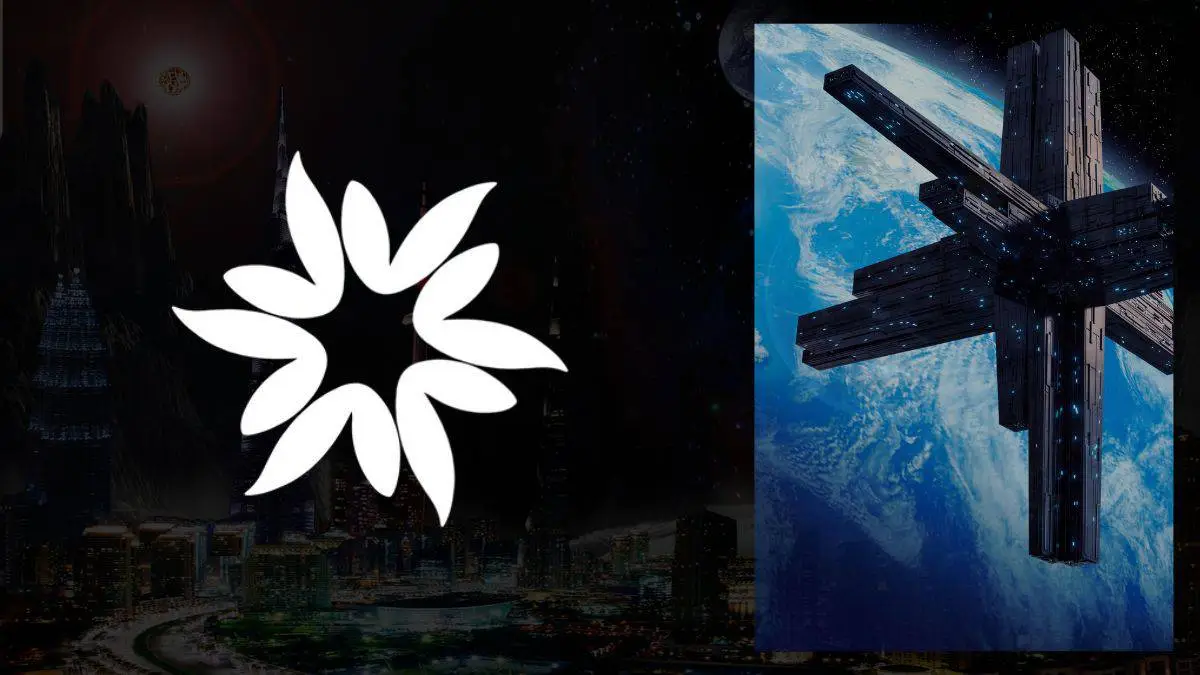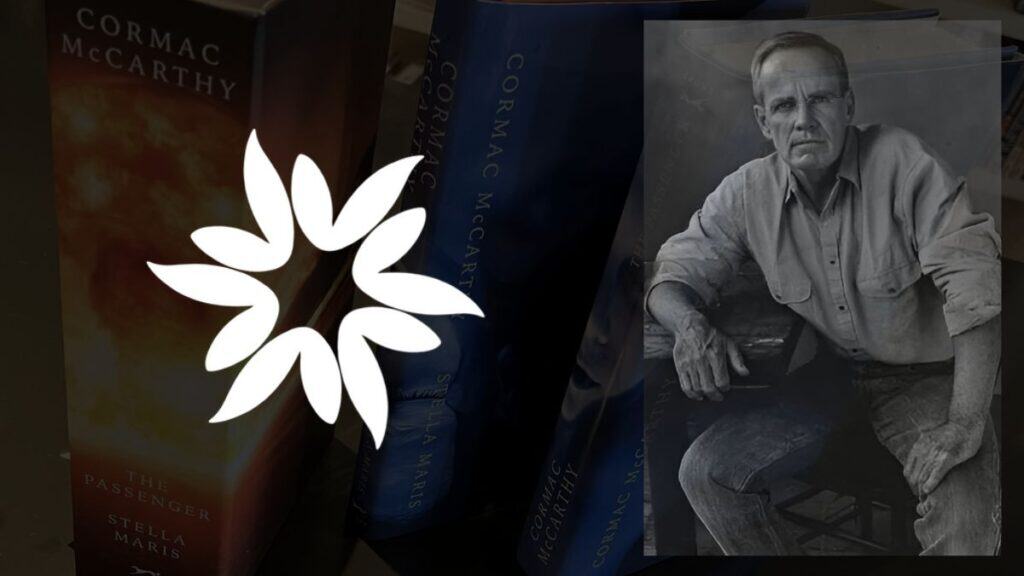Speculative fiction covers various sub-genres, from fantasy and sci-fi to horror and alternate history.
Check out top choices like Those Beyond the Wall and Ghost Station in this guide and learn why this genre keeps grabbing attention and making us think with its creative storytelling.
Key Takeaways
- Speculative fiction includes science fiction, fantasy, horror, and more, exploring futuristic, supernatural, or fantastical elements.
- The genre has ancient origins but was shaped into its modern form by 19th-century authors like Jules Verne and H.G. Wells.
- Today, speculative fiction spans literature, film, and TV, offering complex, imaginative worlds that challenge our understanding of reality.
What Is Speculative Fiction?
Speculative fiction is an umbrella term encompassing a variety of genres, all of which depart from strict realism to explore imaginative, futuristic, supernatural, or other fantastical elements.
This genre includes science fiction, fantasy, horror, and more, covering anything that presents a reality differing significantly from our own.
The unique aspect of speculative fiction lies in its ability to explore the “what if?” scenarios, pushing the boundaries of conventional storytelling by incorporating elements beyond everyday real-world settings.
How Did Speculative Fiction Evolve?
Speculative fiction has a long history in literature, starting from various old sources and slowly forming into the distinct category we know today.
The earliest forms of speculative fiction are in ancient myths and epic stories, where magical elements and mythical creatures often had vital roles.
These tales often acted as stories with lessons or warnings, using fantasy and creative details to discuss human nature and social issues.
By the 19th century, writers like Jules Verne and H.G. Wells started writing stories about future scientific developments and their possible effects on society.
These stories are seen as the beginnings of modern science fiction, a part of speculative fiction. Verne and Wells focused on technological progress’s possible consequences and moral questions.
However, the phrase “speculative fiction” itself became popular much later. Robert A. Heinlein is thought to have first used it in the mid-20th century to describe stories that imagine different realities, whether futuristic, fantastical, or alternate histories.
He intended for the term to cover a wider range than just science fiction, including fantasy, horror, and other creative genres.
Today, speculative fiction keeps growing and diversifying, exploring complex themes and imaginative worlds in books, movies, and TV.
The real power of this genre is in its ability to ask “what if?” questions, stretching our understanding and encouraging us to think about different realities and possibilities.
Genres of Speculative Fiction
Speculative fiction is a broad genre that includes several unique sub-genres, each exploring different themes and elements that diverge from realistic portrayals of the world.
Here’s an overview of some of the most prominent sub-genres within speculative fiction:
- Science Fiction: This sub-genre often deals with futuristic concepts like advanced science, space exploration, time travel, and extraterrestrial life. It explores the potential consequences and ethical dilemmas of scientific and technological progress. Science fiction is known for its emphasis on scientific accuracy and speculative innovation.
- Fantasy: Fantasy focuses on supernatural forms and magical elements as central aspects of the plot, setting, or theme. It frequently incorporates mythical creatures, magical powers, and imaginary worlds. Often linked with medieval themes, fantasy is distinguished by its use of folklore and myth, transporting readers to worlds where magic is a common aspect of life.
- Horror: In speculative fiction, horror focuses on creating a feeling of fear, dread, or terror. It often incorporates supernatural elements or explores the monstrous and unknown to evoke fear in the audience.
- Alternate History: This sub-genre ponders “what if” scenarios within historical contexts, proposing alternative outcomes in history based on different events or decisions.
- Utopian and Dystopian Fiction: These narratives explore idealized or nightmarish societies, often as a commentary on real-world social structures and issues. Dystopian fiction, in particular, has gained popularity for its dark, thought-provoking explorations of totalitarian regimes and societal collapse.
Must Read Short Speculative Fiction Books
Interested in diving into short speculative fiction? Perfect — there are lots of fantastic stories and collections for you to check out. Here are a few highly recommended ones:
- The Lottery by Shirley Jackson: This story, first published in 1948, is renowned for its stunning and chilling exploration of conformity and the arbitrary nature of societal norms. Set in a small town, this narrative builds around an annual event that culminates in a shocking and thought-provoking conclusion.
- Nightfall by Isaac Asimov: Often cited as one of the greatest science fiction short stories of all time, “Nightfall” explores the psychological impact of darkness on a planet illuminated by six suns and the chaos that ensues during a rare eclipse.
- A Sound of Thunder by Ray Bradbury: A classic in the time travel genre, this story follows a time-travel safari that goes disastrously wrong when a hunter steps off the path during a trip to the past, dramatically altering the future.
- The Nine Billion Names of God by Arthur C. Clarke: This story combines elements of technology and mysticism, following two computer programmers hired to help Tibetan monks list all the names of God, leading to unexpected consequences.
- The Ones Who Walk Away from Omelas by Ursula K. Le Guin: A beautifully written piece that poses deep ethical questions within a seemingly utopian city whose prosperity relies on the suffering of a single child.
- Collections by Philip K. Dick and Ursula K. Le Guin: For a broader range of speculative themes, the collections “The Selected Stories of Philip K. Dick” and “The Unreal and the Real” by Ursula K. Le Guin are excellent. They showcase a variety of stories ranging from explorations of alternate realities to profound philosophical inquiries.
- Those Beyond the Wall by Micaiah Johnson: Set in a dystopian future, this novel follows the tension between two cities across a barren desert. It’s a blend of sci-fi thriller elements with deep social commentary.
- Catchpenny by Charlie Huston: This novel features a hero who can travel through mirrors to perform heists. It’s a mix of fantasy and mystery with a unique twist on the genre.
- Ghost Station by S.A. Barnes: A claustrophobic space horror where a psychologist on a remote outpost must prevent a mysterious condition from decimating the crew.
- The Last Murder at the End of the World by Stuart Turton: In a world engulfed by a killing fog, a murder threatens the safety of a small fishing village.
- You’re Safe Here by Leslie Stephens: Set in a future with wellness pods for the wealthy, this thriller explores the dark side of technology and corporate intrigue.
- Made For You by Jenna Satterthwaite: This novel features a reality TV show with a synthetic participant, exploring themes of artificial personhood and romance.
- The Cautious Traveller’s Guide to the Wastelands by Sarah Brooks: A steampunk adventure through the dangerous Wastelands on a massive train filled with mystery and intrigue.
- The Siege of Burning Grass by Premee Mohamed: Lastly, we have a fantasy novel that covers the cost of war featuring a pacifist protagonist trying to end a long-standing conflict.
Why Read Speculative Fiction in 2024?
Speculative fiction lets us imagine different worlds and covers everything from future technology in science fiction to magic in fantasy stories. This genre is perfect for you if you like stories that make you think about different possibilities.
Grab one of the must-read speculative fiction books of 2024, like Those Beyond the Wall by Micaiah Johnson or Ghost Station by S.A. Barnes, and let your journey into the extraordinary begin.
Start your adventure in a world where anything can happen, and let your imagination fly!
















